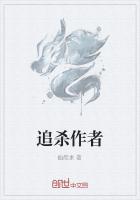“Prince Auersperg is stationed on this side—our side—and is defending us; defending us very ineffectually, I imagine, but any way he is defending us. But Vienna’s on the other side of the river. No, the bridge has not been taken, and I hope it won’t be taken, because it is mined and orders have been given to blow it up. If it were not so, we should have long ago been in the mountains of Bohemia, and you and your army would have spent a bad quarter of an hour between two fires.”
“But still that doesn’t mean that the campaign is over,” said Prince Andrey.
“But I believe that it is over. And so do all the big-wigs here, though they don’t dare to say so. It will be as I said at the beginning of the campaign, that the matter will not be settled by your firing before D?renstein, not by gunpowder, but by those who invented it,” said Bilibin, repeating one of his mots, letting the creases run out of his forehead and pausing. “The only question is what the meeting of the Emperor Alexander and the Prussian king may bring forth. If Prussia enters the alliance, they will force Austria’s hand and there will be war. If not, the only point will be to arrange where to draw up the articles of the new Campo Formio.”
“But what an extraordinary genius!” cried Prince Andrey suddenly, clenching his small hand and bringing it down on the table. “And what luck the man has!”
“Buonaparte?” said Bilibin interrogatively, puckering up his forehead and so intimating that a mot was coming. “Buonaparte?” he said, with special stress on the u. “I think, though, that now when he is dictating laws to Austria from Sch?nbrunn, we must let him off the u. I shall certainly adopt the innovation, and call him simply Bonaparte.”
“No, joking apart,” said Prince Andrey, “do you really believe the campaign is over?”
“I’ll tell you what I think. Austria has been made a fool of, and she is not used to that. And she’ll avenge it. And she has been made a fool of because in the first place her provinces have been pillaged (they say the Holy Russian armament is plundering them cruelly), her army has been destroyed, her capital has been taken, and all this for the sweet sake of his Sardinian Majesty. And so between ourselves, my dear boy, my instinct tells me we are being deceived; my instinct tells me of negotiations with France and projects of peace, a secret peace, concluded separately.”
“Impossible!” said Prince Andrey. “That would be too base.”
“Time will show,” said Bilibin, letting the creases run off his forehead again in token of being done with the subject.
When Prince Andrey went to the room that had been prepared for him, and lay down in the clean linen on the feather-bed and warmed and fragrant pillows, he felt as though the battle of which he brought tidings was far, far away from him. The Prussian alliance, the treachery of Austria, the new triumph of Bonaparte, the levée and parade and the audience of Emperor Francis next day, engrossed his attention. He closed his eyes and instantly his ears were ringing with the cannonade, the firing of muskets, and the creaking of wheels, and again he saw the long line of musketeers running down-hill and the French firing, and he felt his heart beating and saw himself galloping in front of the lines with Schmidt, and, the bullets whizzing merrily around him; and he knew that sense of intensified joy in living that he had not experienced since childhood. He waked up.
“Yes, that all happened!”…he said, with a happy, childlike smile to himself. And he fell into the deep sleep of youth.















